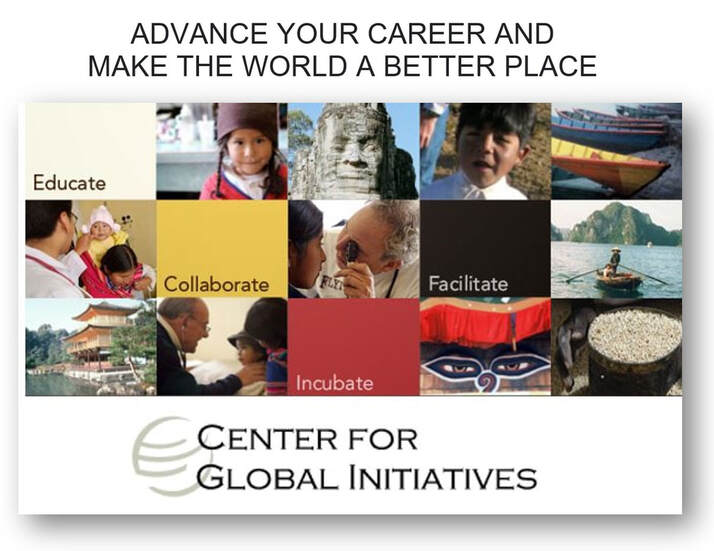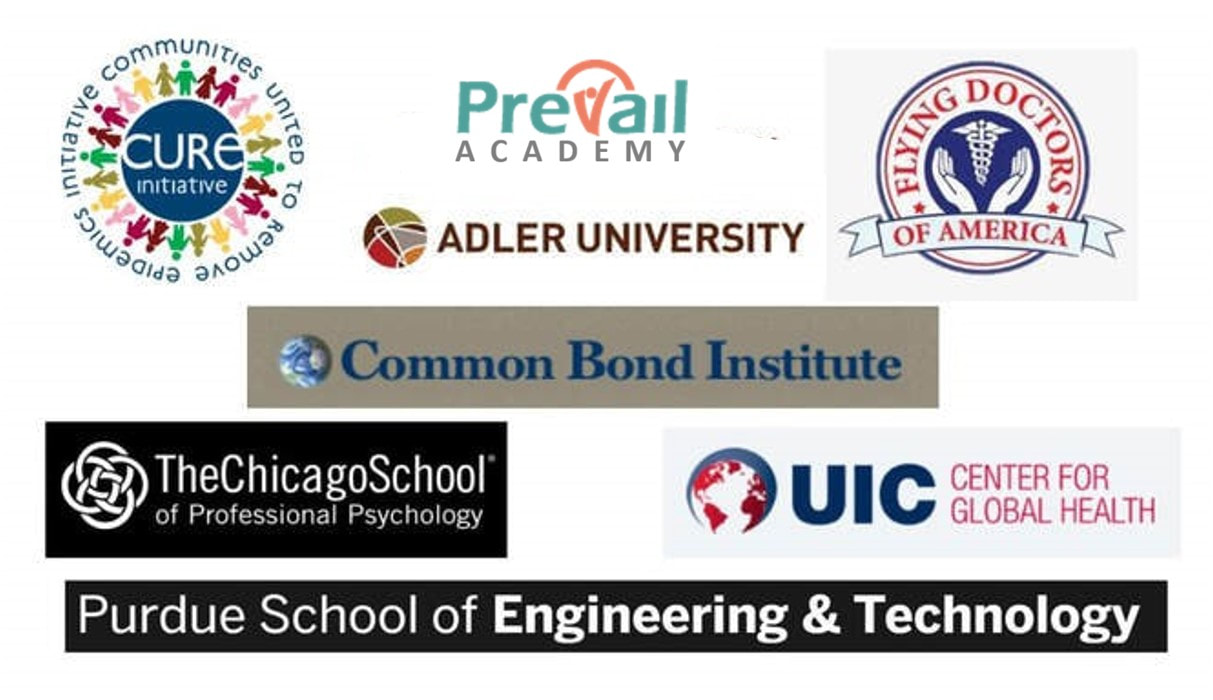Fellowship, Certification and
Global Ambassador
Consider becoming a Global Ambassador where you can travel the world and make it a better place.
I served as a Delegation Leader in South Africa, Czech Republic and Poland for the Citizen Ambassador Program. That Program was initiated in 1956 by the US State Department under the Eisenhower Administration as he envisioned private citizen exchanges, where citizens of diverse cultures would gain an international understanding of their peers and professions, through the in-country exchange of ideas and experiences. My two tours as a Delegation Leader were amazing and rewarding experiences, and I look forward to this opportunity to grow this approach even further with our Program.
Similar to the State Department’s Program, the APA has an International Learning Partner Program that I have also been a part of–participating in projects to Kosovo and Cuba. The idea with all of our Programs is to develop relationships with non-US based sites, centers, organizations and universities (that may also become part of our Consortium), in order to support and further the principles brought forth the in APA's Global Impact The Power of Partnerships, as well as global health aspects and sustainable development. In addition to meetings with leaders in the field, our Delegates would exchange knowledge, ideas and resources, with the goal of long-term international relationships and collaborations. While we may focus on mental health, the Program is not exclusive to psychologists, psychiatrists, counselors, or social workers; we seek to have diverse Delegations of professionals (and their partners/family members are welcome as well) from all fields and walks of life. The uniting thread will be delegates’ desire to be of service, continuing learning, and global travel experiences.
The ethos is that of shared collaboration and learning, no West-knows-best hubris or Colonialist egoism. Like the APA, the idea is to provide and support “the unique opportunity to gain insights into psychology and mental health care across the world, learn from international colleagues…” through professional meetings and also to provide time to enjoy and experience the culture, environment, and people in the areas visited.
The initial planning for our Program includes visits to university, hospital, clinical, community and governmental settings that work with issues of addiction and rehabilitation, trauma, education, aging, policy, immigration, refugees, medicine, global and public health, program development, research and areas of potential collaboration and mutual interest. And where applicable, we also hope to be able to provide Continuing Education credits (CEUs, CMEs, CECs) for clinically licensed Delegates.
As we are in the nascent development stage, we would value any ideas, contacts, and suggestions of any sort as we build this Program out.
Our current friends and collaborators are:
The Harvard Humanitarian Initiative
The Consortium for Humanitarian Intervention
The Mind Body Passport
Eisenhower Foundation’s Citizen Ambassador Program
Flying Doctors of America
We’re looking to expand our reach to do even more with your help!
Consider becoming a Global Ambassador where you can travel the world and make it a better place.
I served as a Delegation Leader in South Africa, Czech Republic and Poland for the Citizen Ambassador Program. That Program was initiated in 1956 by the US State Department under the Eisenhower Administration as he envisioned private citizen exchanges, where citizens of diverse cultures would gain an international understanding of their peers and professions, through the in-country exchange of ideas and experiences. My two tours as a Delegation Leader were amazing and rewarding experiences, and I look forward to this opportunity to grow this approach even further with our Program.
Similar to the State Department’s Program, the APA has an International Learning Partner Program that I have also been a part of–participating in projects to Kosovo and Cuba. The idea with all of our Programs is to develop relationships with non-US based sites, centers, organizations and universities (that may also become part of our Consortium), in order to support and further the principles brought forth the in APA's Global Impact The Power of Partnerships, as well as global health aspects and sustainable development. In addition to meetings with leaders in the field, our Delegates would exchange knowledge, ideas and resources, with the goal of long-term international relationships and collaborations. While we may focus on mental health, the Program is not exclusive to psychologists, psychiatrists, counselors, or social workers; we seek to have diverse Delegations of professionals (and their partners/family members are welcome as well) from all fields and walks of life. The uniting thread will be delegates’ desire to be of service, continuing learning, and global travel experiences.
The ethos is that of shared collaboration and learning, no West-knows-best hubris or Colonialist egoism. Like the APA, the idea is to provide and support “the unique opportunity to gain insights into psychology and mental health care across the world, learn from international colleagues…” through professional meetings and also to provide time to enjoy and experience the culture, environment, and people in the areas visited.
The initial planning for our Program includes visits to university, hospital, clinical, community and governmental settings that work with issues of addiction and rehabilitation, trauma, education, aging, policy, immigration, refugees, medicine, global and public health, program development, research and areas of potential collaboration and mutual interest. And where applicable, we also hope to be able to provide Continuing Education credits (CEUs, CMEs, CECs) for clinically licensed Delegates.
As we are in the nascent development stage, we would value any ideas, contacts, and suggestions of any sort as we build this Program out.
Our current friends and collaborators are:
The Harvard Humanitarian Initiative
The Consortium for Humanitarian Intervention
The Mind Body Passport
Eisenhower Foundation’s Citizen Ambassador Program
Flying Doctors of America
We’re looking to expand our reach to do even more with your help!
Fellowship and Certification Programs
The Center for Global Initiatives started by working with partners across the globe. We soon found out that with an all volunteer organization that 1:1 work was not scalable. So, we then "pivoted" and developed an approach we referred to as "Opensource Humanitarian Intervention," in that we freely provided tools and resources to help others with their work in the humanitarian space. We work to reduce the friction and hassles often associated in the process of helping and working with others.
Now, we have taken the opensource approach and applied it to providing instruction and learning in that all of the materials that are used in our Certificate Programs are free; all the time, to anyone, everywhere. All tuition goes to fund the work of the Center and its projects. No Core Faculty are paid, including the Program Chair.
What we have done is source and curate materials -- articles, chapters, videos, talks, lectures, webinars, podcasts, books, websites, apps, and any other helpful media -- into a syllabus, and that syllabus is part of a structured curriculum that when successfully completed will yield a Certification in the area of specialization from the Center. Students receive specific feedback and critique on each component of their submitted coursework for grading. Once there is a successful completion of the course, the student receives a transcript that may be submitted to their program or university if need be as confirmation of successful completion of the Certificate Program they were enrolled in. The expectation, however, is that most students participating in the Certificate Program will be post-graduate or post-doctoral students, and the Certification is an additional credential to apply the learning in their work and to be able to list on their resume, bio, and/or CV.
To learn more and apply, click here.
Consortium for Humanitarian Intervention
The Center has developed an education and research Consortium and contracted with top Universities, Medical Schools, and International NGOs. We have built a world class faculty and resources in order to provide the tools, network, contacts, and support for Center Scholars to make a difference in the world and advance their careers.
The Center for Global Initiatives started by working with partners across the globe. We soon found out that with an all volunteer organization that 1:1 work was not scalable. So, we then "pivoted" and developed an approach we referred to as "Opensource Humanitarian Intervention," in that we freely provided tools and resources to help others with their work in the humanitarian space. We work to reduce the friction and hassles often associated in the process of helping and working with others.
Now, we have taken the opensource approach and applied it to providing instruction and learning in that all of the materials that are used in our Certificate Programs are free; all the time, to anyone, everywhere. All tuition goes to fund the work of the Center and its projects. No Core Faculty are paid, including the Program Chair.
What we have done is source and curate materials -- articles, chapters, videos, talks, lectures, webinars, podcasts, books, websites, apps, and any other helpful media -- into a syllabus, and that syllabus is part of a structured curriculum that when successfully completed will yield a Certification in the area of specialization from the Center. Students receive specific feedback and critique on each component of their submitted coursework for grading. Once there is a successful completion of the course, the student receives a transcript that may be submitted to their program or university if need be as confirmation of successful completion of the Certificate Program they were enrolled in. The expectation, however, is that most students participating in the Certificate Program will be post-graduate or post-doctoral students, and the Certification is an additional credential to apply the learning in their work and to be able to list on their resume, bio, and/or CV.
To learn more and apply, click here.
Consortium for Humanitarian Intervention
The Center has developed an education and research Consortium and contracted with top Universities, Medical Schools, and International NGOs. We have built a world class faculty and resources in order to provide the tools, network, contacts, and support for Center Scholars to make a difference in the world and advance their careers.
Certifications
We also act a third-party certification body using both Board and Advisor reviews of curricula and training programs submitted to us for consideration. If certified, the Center enters into a Memorandum of Agreement with the entity. The Center brings the experience of a trained APA Accreditation Site Reviewer and Baldridge National Quality Award Examiner. Such collaboration it is a natural fit with the purpose of the Center and the ethos of our work.
We also act a third-party certification body using both Board and Advisor reviews of curricula and training programs submitted to us for consideration. If certified, the Center enters into a Memorandum of Agreement with the entity. The Center brings the experience of a trained APA Accreditation Site Reviewer and Baldridge National Quality Award Examiner. Such collaboration it is a natural fit with the purpose of the Center and the ethos of our work.






